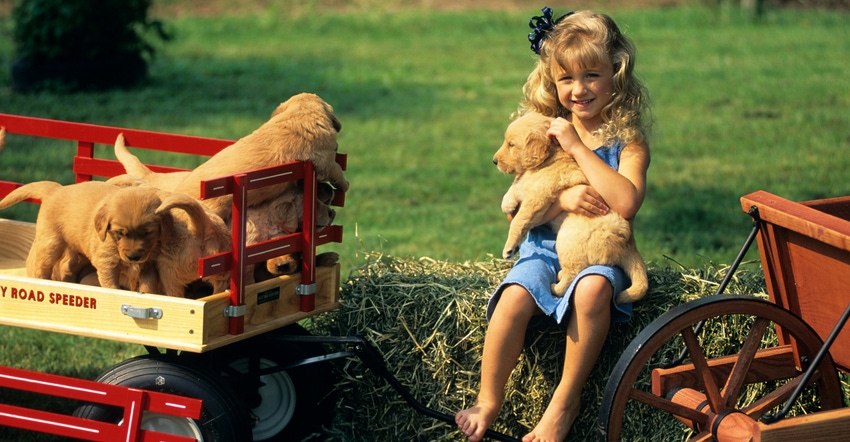April 28, 2021

Farms are a great place for kids to grow up, according to Marsha Salzwedel, youth ag safety specialist at Marshfield Clinic Research Foundation’s National Farm Medicine Center in Marshfield, Wis. Salzwedel and Cheryl Skjolaas, University of Wisconsin-Madison agricultural safety and health senior outreach specialist, spoke earlier this month during a Professional Dairy Producers webcast.
Salzwedel said growing up on a farm helps kids build character, and it instills them with a good work ethic. But she said there are also downsides to growing up on a farm.
Tragic numbers
Every day, 33 children in the United States are seriously injured on farms, she said. Every three days, a child on a U.S. farm dies in a farm accident.
Salzwedel said 60% of children injured in farm accidents are not working on a farm at the time of the injury.
The top three causes of fatal accidents on farms, according to Salzwedel, are:
tractors and farm machinery
motor vehicles
drowning
The top three causes of non-fatal accidents on farms, she said, are:
falls
animals
machinery and vehicles
“Agriculture is one of our nation’s most hazardous industries,” she explained. “Injuries on farms often are more traumatic than childhood injuries from sports.”
Non-fatal injuries to youth on farms in the U.S. cost $1.26 billion every year, Salzwedel said.
What can families do to minimize the risk of their children being seriously injured or killed in a farm accident?
Safety strategies
Salzwedel recommends the following five safety strategies:
Keep kids away from tractors. Don’t give them rides on tractors. A tractor is not the place to spend quality time with a child.
Keep young children out of the worksite. Take them to day care. Have a safe, fenced area on the farm that prevents them from running out to the driveway when they see mom or dad.
Ensure age-appropriate work for youth working on the farm. Access every youth by their age and ability to perform.
Ensure the work environment is as safe as possible.
Provide training for work and tasks. This is important for youth as well as adults.
“We’re seeing more youth hired to work on farms due to the problems at the southern border now,” Salzwedel said. “There are restrictions on what hours youth can work on farms and what age they have to be.”
In Wisconsin, 12- to 15-year-olds must complete a tractor safety course and pass written and driving tests to receive a certificate of completion in order to operate a tractor on a farm or drive a tractor on a road.
During May and June, the hours farmers and kids will be working on the farm will be increasing and everyone will be tired.
“Fatigue is a huge contributor to accidents,” Salzwedel warned. “Make sure you know where your kids are. Keep them in day care or in safe play places on the farm.”
You May Also Like




